In today's fast-paced world, it's not uncommon for businesses and individuals to face service requests they can't accommodate. When turning down a request, how you communicate that decision can make all the difference. A well-crafted letter not only expresses gratitude but also maintains a positive relationship with the requester. If you're navigating this situation and want to ensure your message is both respectful and clear, keep reading for some helpful tips and examples!

Acknowledgment of Request
Acknowledgment of service requests is essential for transparent communication. Each request represents a client's need, whether it pertains to technical support, billing inquiries, or service adjustments. Acknowledgment responses typically include the request reference number, date of submission, and expected response timeline. Timely acknowledgment (within 24 hours) enhances customer satisfaction, fostering trust and reliability. Ensuring clarity in communication helps set realistic expectations and encourages positive client relationships. Clear messaging demonstrates professionalism and respect for the customer's time and needs.
Appreciation for Understanding
Service requests may be declined due to various factors, such as resource availability or specific policies. Communicating this decision requires a thoughtful approach. Acknowledging the individual or organization requesting the service fosters goodwill. It's important to convey genuine appreciation for their understanding and consideration. For instance, a business might express gratitude for the request made on June 10, 2023, highlighting the value of the relationship. Clarifying the reason for the decline, while remaining courteous, ensures transparency. Finally, an invitation to revisit the discussion in the future can keep the door open for potential collaboration or support, reinforcing positive engagement.
Clear Reason for Decline
A decline of service request can often be a delicate situation, particularly when it involves a professional organization and a client's needs. In such cases, it's essential to communicate respectfully while providing a clear reasoning behind the decision. Clarifying the basis for the decline helps maintain transparency and potentially preserves the relationship for future interactions. Organizations often cite factors such as resource limitations, capacity constraints, or alignment with service offerings. Effective communication emphasizes understanding and professionalism, making it vital to express gratitude for the request while firmly stating the inability to fulfill it. This approach fosters goodwill, leaving an open door for future opportunities.
Alternative Suggestions
In response to service requests from customers, it is essential to communicate thoughtfully. When a service request cannot be fulfilled, alternative suggestions can offer a constructive pathway forward. Potential recommendations may include exploring other service providers known for their reliability, checking local resources available through community centers, or utilizing online platforms that specialize in similar services. Suggesting a consultation with professionals in the field can also guide customers to appropriate solutions. Encouraging customers to review testimonials and feedback about other options may help them make informed decisions. Providing these alternative suggestions conveys respect for the customer's needs while maintaining a positive relationship.
Positive Closing Statement
In recent years, businesses have experienced numerous challenges that affect service requests. Understanding the importance of customer satisfaction, responding with professionalism remains crucial. When faced with a situation where a service request cannot be fulfilled, a graceful decline ensures a positive experience. A thoughtful closing statement might emphasize the company's commitment to future opportunities, reassuring clients of ongoing support. This approach maintains goodwill and encourages a strong relationship moving forward, paving the way for potential collaboration on other projects in the future.
Letter Template For Decline Of Service Request Gracefully Samples
Letter template of service request decline with appreciation for inquiry
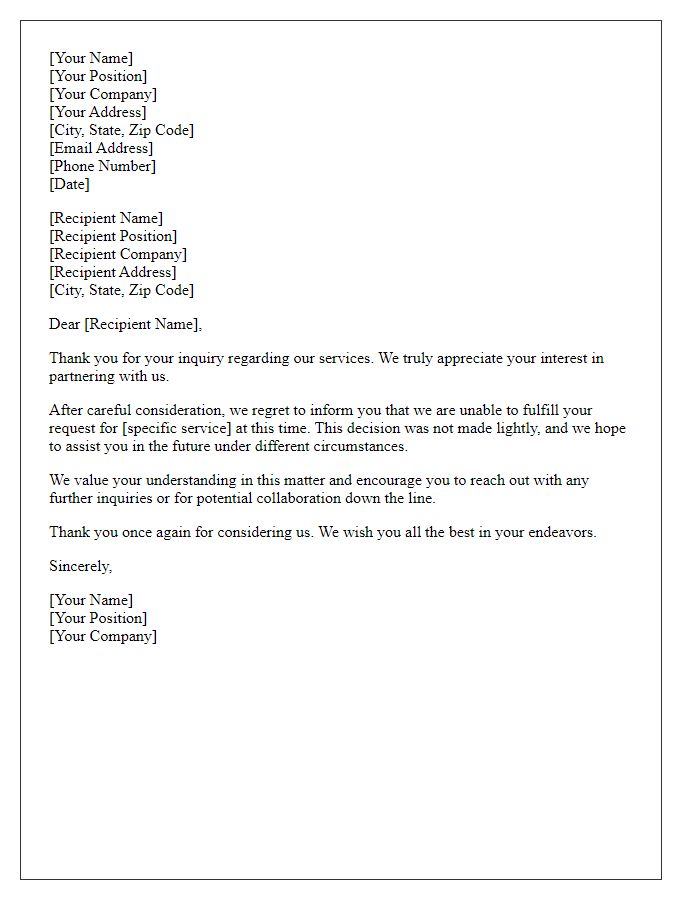

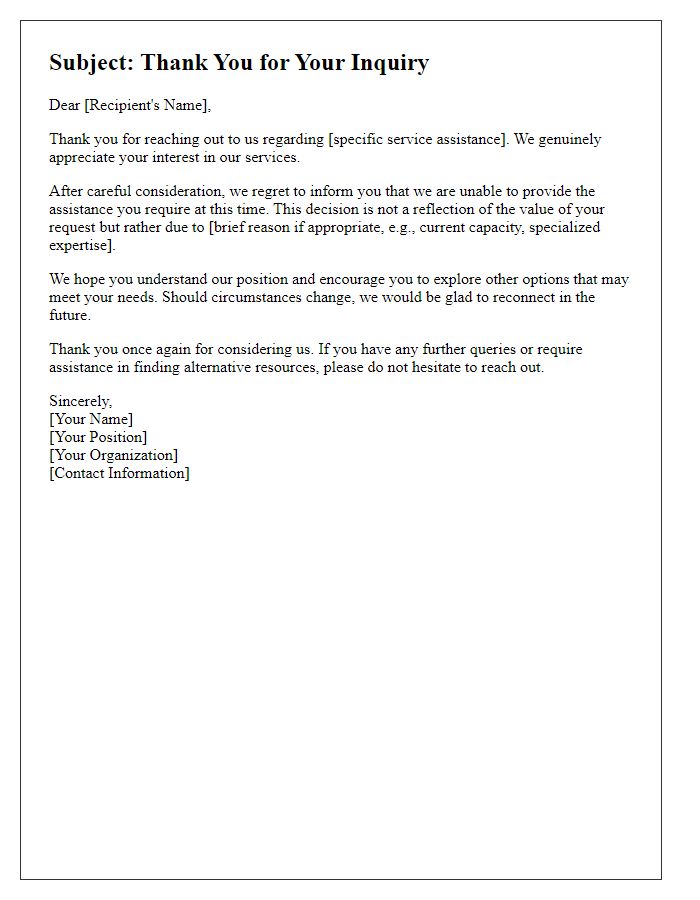
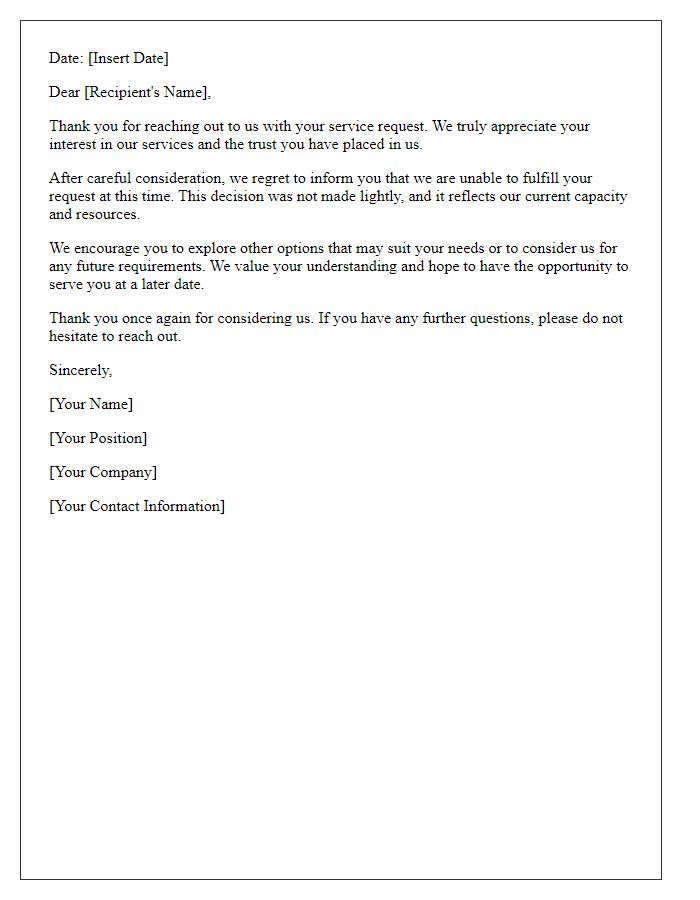
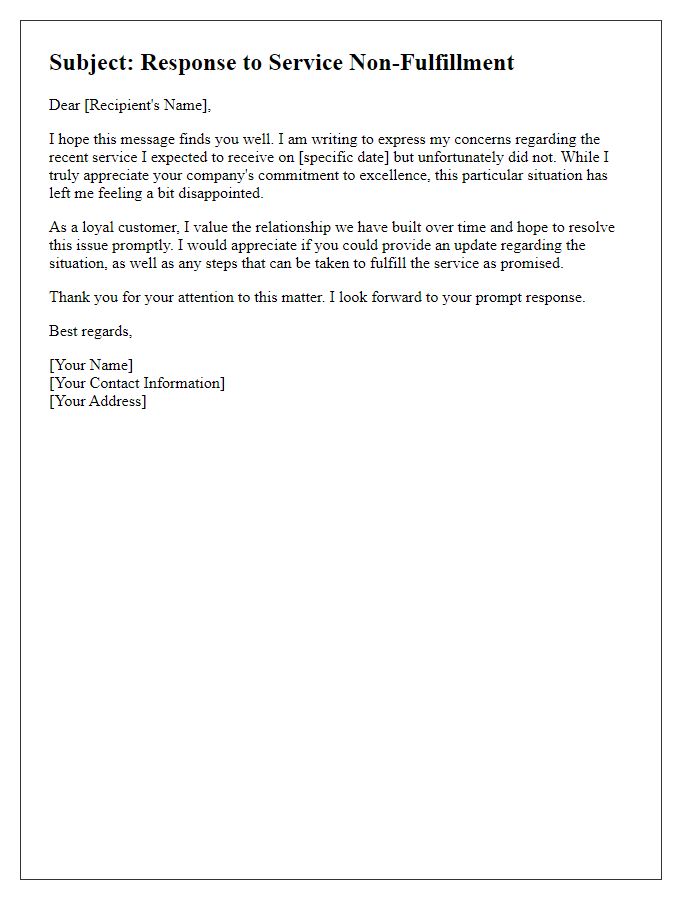
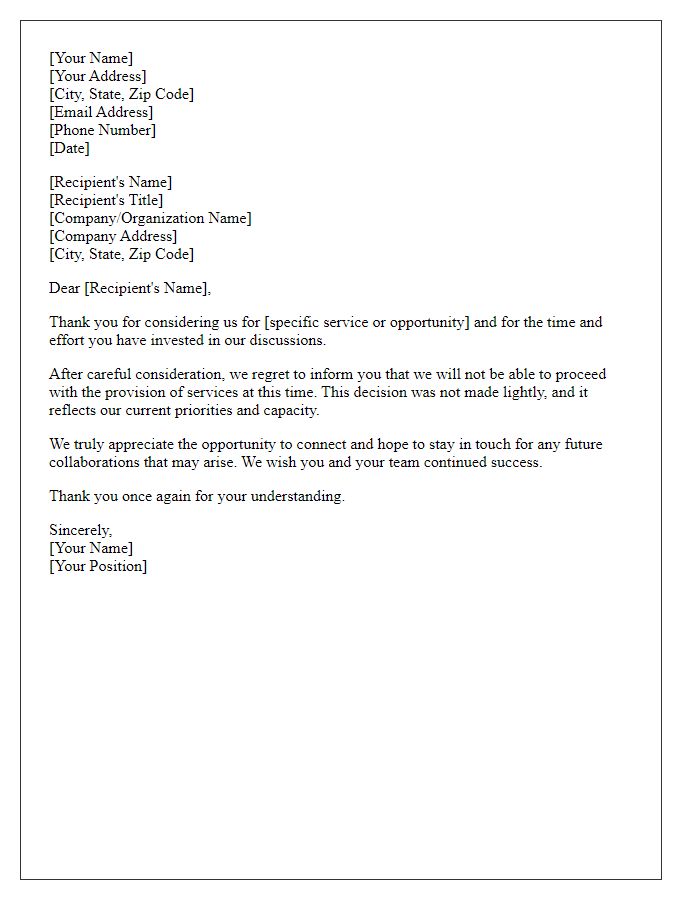
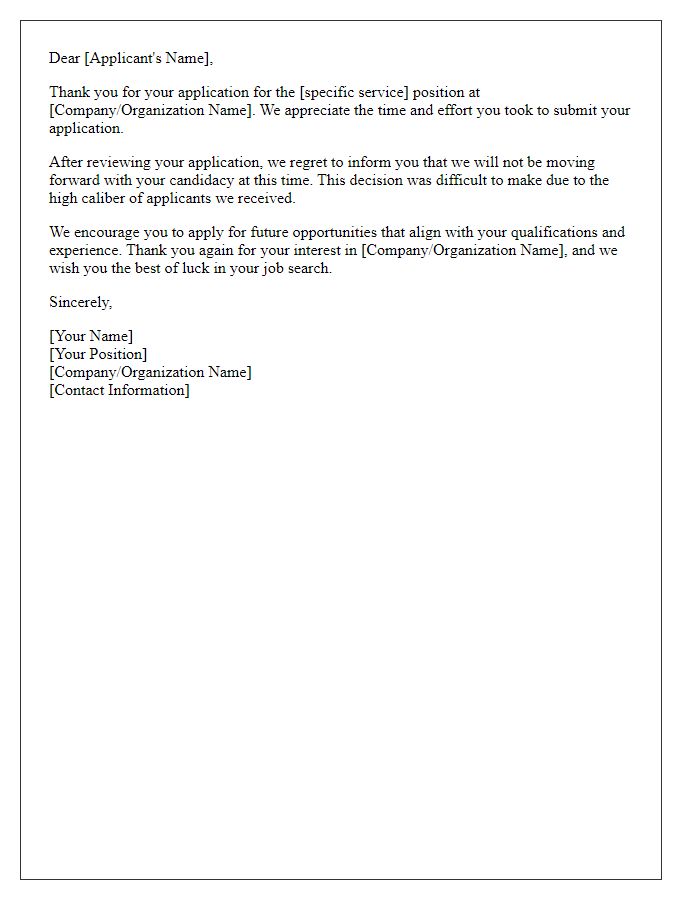
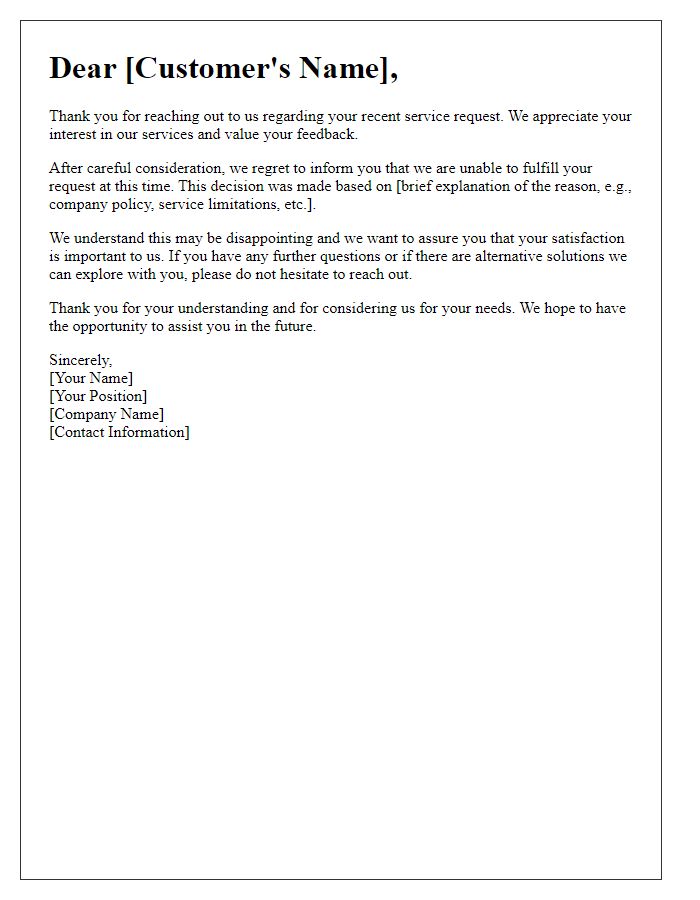
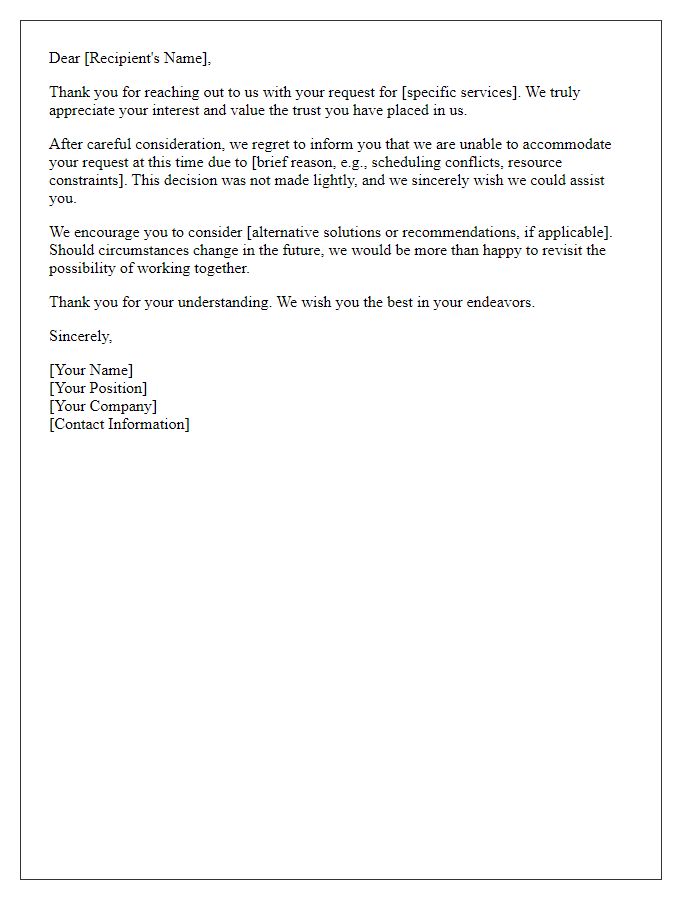
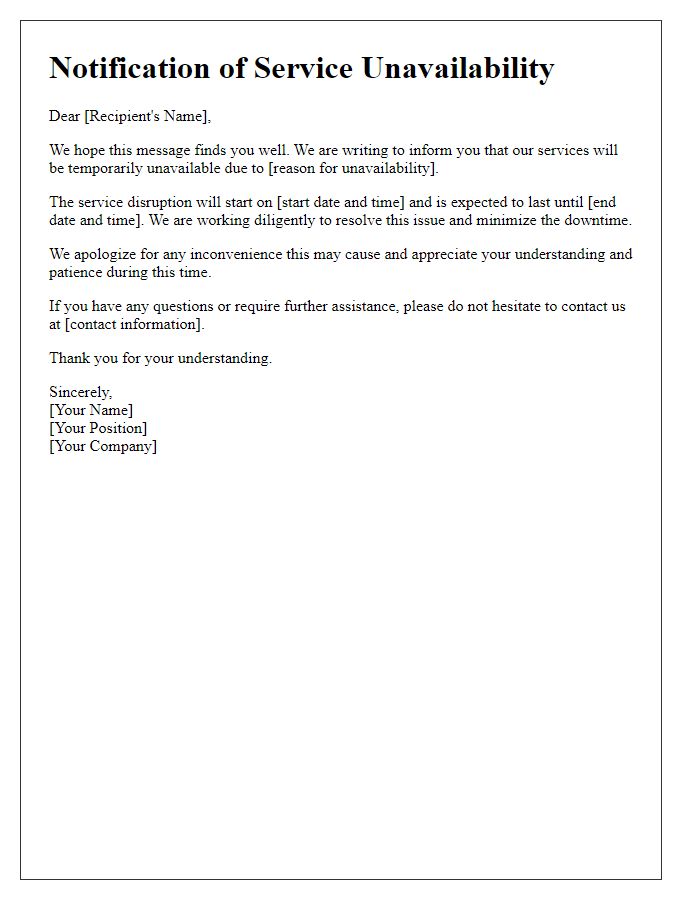
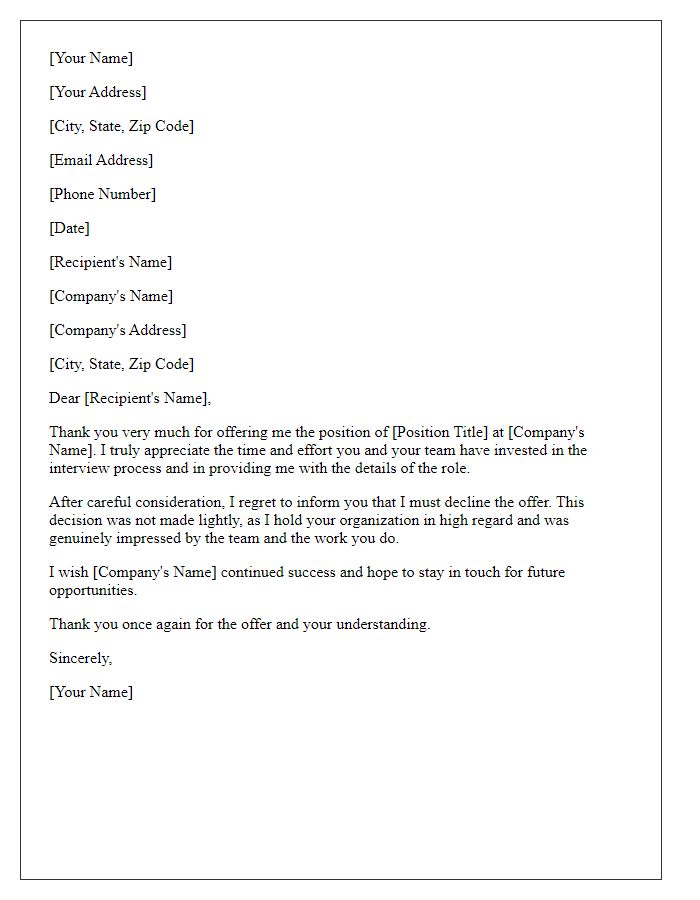


Comments